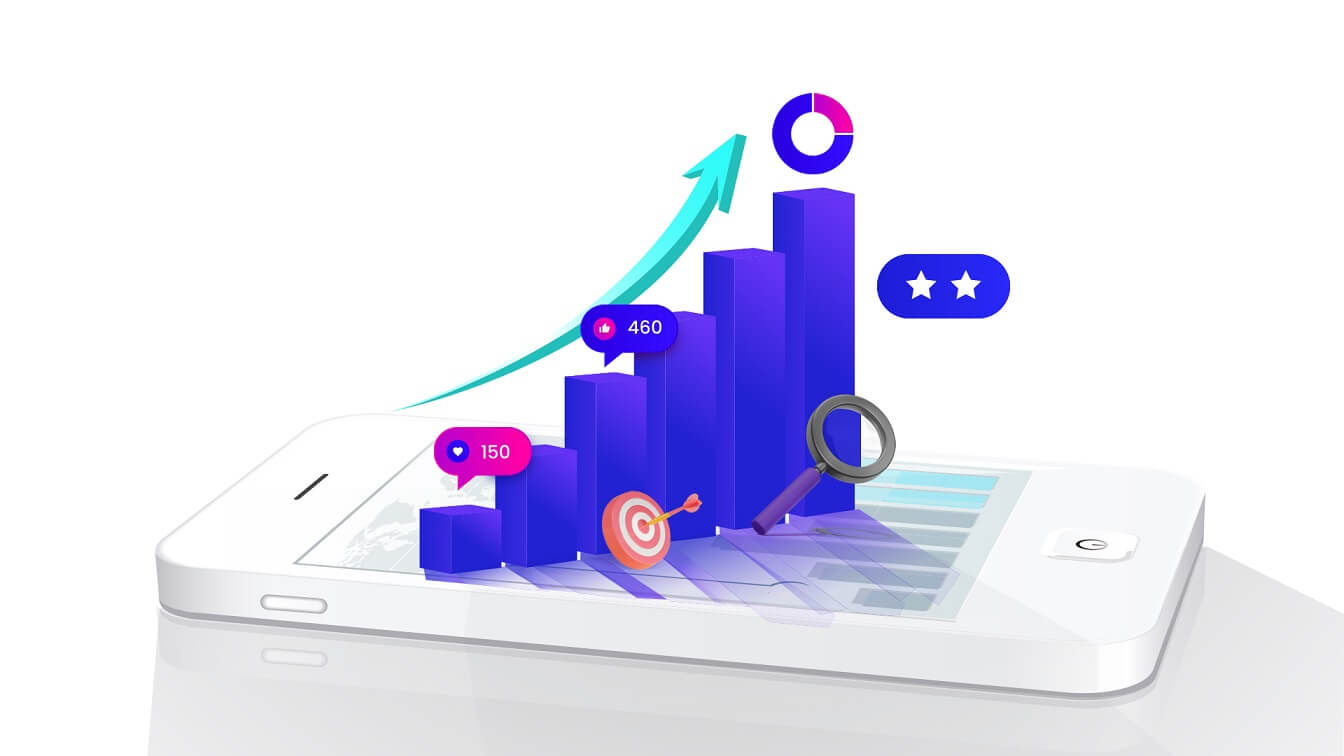
Data driven marketing: An Entrepreneur’s Way To Success
- Digital Marketing
- 11 May 2023
Businesses no longer plan their marketing strategies based on assumptions or hunches. You need solid conclusive research information. Such data aid companies make sound and resolute business decisions, thereby gaining more profit and measurable success. Businesses offer solutions to problems, which should be in tandem with what consumers seek. It means that the answers should be of the intended value to your target consumer base. Else, the entire marketing effort will reap nothing. And that is why your business shouldn’t ignore this potent tool data-driven marketing.
CONTENTS
Why Every Business Need Data-Driven Marketing?
Because businesses seek sustainability and profits, customer data from various research-backed sources is a boon for companies. Consumers are constantly bombarded with multiple advertisements and campaigns, so it is crucial to hone in on a data-driven strategy. No longer are companies going by the guesswork of what products or services buyers want. They have realized that their marketing strategies must be more optimized to learn about their target customer needs. That has to be at the right time and will eventually help expand their customer base. Let’s examine why businesses are hopping onto the data-driven approach bandwagon.
Know They Customers

Every business has its unique ways of understanding its consumers. Understanding customers is the key to getting your hands on the market’s nerve. You cannot arrive at any strategy without knowing your customers. That’s the basic requirement and you must have an in-depth understanding of your customers.
Interestingly customer behaviour is never constant, so strive to be updated about their likes, online/offline buying patterns, needs, other factors. All this information would help tailor the suitable marketing campaigns for a more consumer-centric approach. Analytics tools are valuable for studying derived data and understanding your target market. These metrics identify businesses’ opportunities and highlight areas where they should improve. Therefore, know your customers to map out your strategy well.
Personalized Channels
Data may show more than just the preferences of target customers. Customer data will also give you a profound understanding of your targeted audience’s behavior. Additionally, it could recommend the best platform for any brand to find its target audience and engage them optimally. With this knowledge, they might place the message at the right place and time. For example, Gen X and Y are more active on social media such as Instagram, Snapchat or Discord, whereas Gen Z is more active on Facebook. Of course, older audiences are comfortable with print communication mediums, such as magazines or newspapers. Once your target audience characteristics are identified from here, you can zero down on more effective strategies. It will fetch you more from the time, money and effort you invested and all of these increase sales.
Learn more about: Why should brands consider short videos as part of their content strategy?
Campaigning for Success!
The marketing teams would then focus on promotional campaigns using relevant information from their data collection. The advertising strategy would be well planned with crucial data points from various data sources. This will ensure that the promotion meets its expected goals and stays within your budge. Marketers have a far better idea about the content and timing of marketing messages. The do that with well-examined data. When you know what your consumers require – products or services; content and campaign will resonate well with them. In this way, the appropriate message reaches the right group of people and in the proper time. These campaigns are of their interest, and they boost customer interactions with optimal engagement. Thereby, it creates value by providing a solution to their need. Thus, it establishes a trust chord.
Better Customer Experience

There is no shortage of products or services, and despite that, why will customers purchase what you offer? When you hover over this thought, you will find the acute solution – customer experience. It is the experience that customers use to differentiate between different brands. Businesses can use data to know their customers in and out. This will help them to zero down on offering the right products or services with precision,
Marketing teams would benefit from customer value analytics data. The data, it can identify ways to shorten the sales cycle without sacrificing individualized service. Big data and in-depth customer analytics allow marketers to design more effective campaigns with individualized messaging. It improves customer experience by making it consistent. Customers receive the same whether they contact a business via social media, phone, or in-person interactions. Brand trust and improved brand perception follow more user engagement and credibility, which eventually results in more sales, loyalty, and advocacy.
Continuous Upgradation of Brand Image
Data-driven marketing strategies allow you to create more targeted content, which people appreciate and thus boost engagement. Users are more inclined to like, share, and engage with your material when it addresses their needs. That’s the brilliance of marketing messages. Brand trust and improved brand impression correlate with higher user engagement, which eventually results in more sales, loyalty, and advocacy. Big data tells how users interact with your business by tracking websites, social media platforms, and customer digital footprints. When managing your brand’s reputation or enhancing its image, big data is a big help. Data solutions fundamentally mean that businesses can keep an eye on their social proof and react to problems that can be promptly fixed.
Stronger Connections

Customers will benefit from well-planned campaigns because they provide what they seek. Data-driven marketing helps you to create more targeted content. It strikes the right cord with the audience; they appreciate it and engage more. They will come back to you for more. Gradually and after a few cycles, they see you as comfort. That’s how connections work; once you can establish a meaningful relationship with your customers, it becomes an effortless process. That’s how data-driven marketing strategies magically satisfy customer demands and build a stronger bond between the brand and its customers.
Loyalty = Profitability
Loyal customers are your best brand ambassadors. With consistent influences, quality and commitment to customer satisfaction, loyalty comes with ease. It fetches your brand sustainability; isn’t that every business strives for? You can lose new and existing clients if you miss quality or fail to respond to customer needs. While devoted clients are willing to stick around for the long haul, neglecting them for too long will force them to go. So use data optimally to know your customer base, track their changing buying behaviors, and plan and execute accordingly.
Be aware of the competition
You can use the same technology for social monitoring to track and evaluate the marketing tactics of your competitors. Such a measure will help you to manage your reputation online, and you will be able to learn more about your target audience. Another reason for using big data analytics tools is finding creative ideas, improving current procedures, and learning from peers’ mistakes.
Data-driven marketing is necessary for the current marketplace. It is primarily because of rapidly rising customer expectations, diversifying communication platforms, stringent market competition and more. Businesses that use data effectively in every marketing campaign can boost sales and revenue, enhance client loyalty and sustain the outcome. Marketing efforts to reach its targeted demography would be more probable. The more businesses utilize data for their marketing efforts, the better they can tailor client experiences, maximize spending, and increase ROI, because they would have substantial scientific information to know what works and what doesn’t.
recommended

3 Benefits of Marketing Automation Events
- Digital Marketing
- 24 April 2024


A Short History of AI
- MIU Blog
- 06 October 2023

Build Your Digital Presence for Free using Instagram Marketing
- Branding
- 19 September 2023




 Branding
Branding Digital Strategy
Digital Strategy PR & Communications
PR & Communications